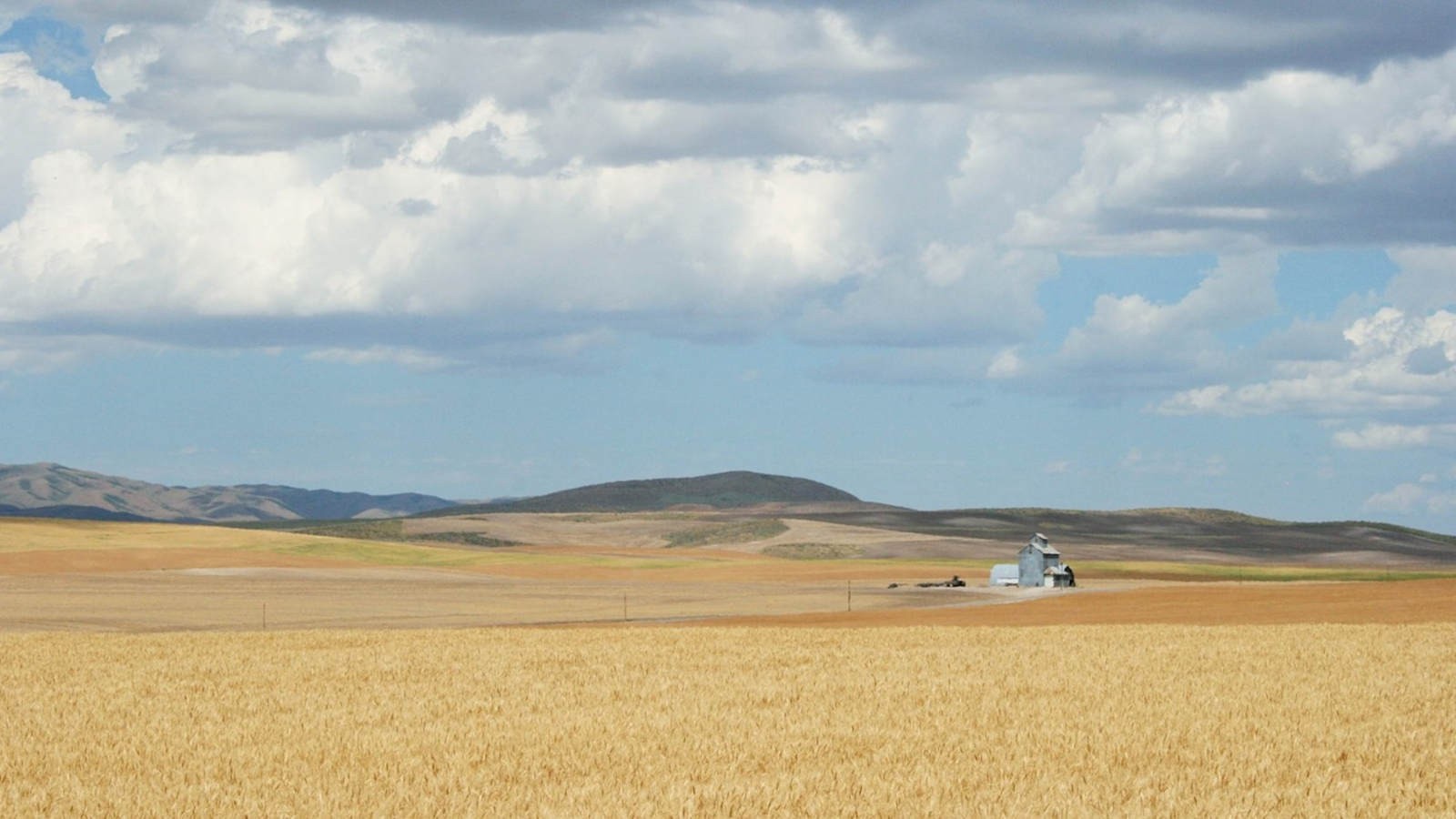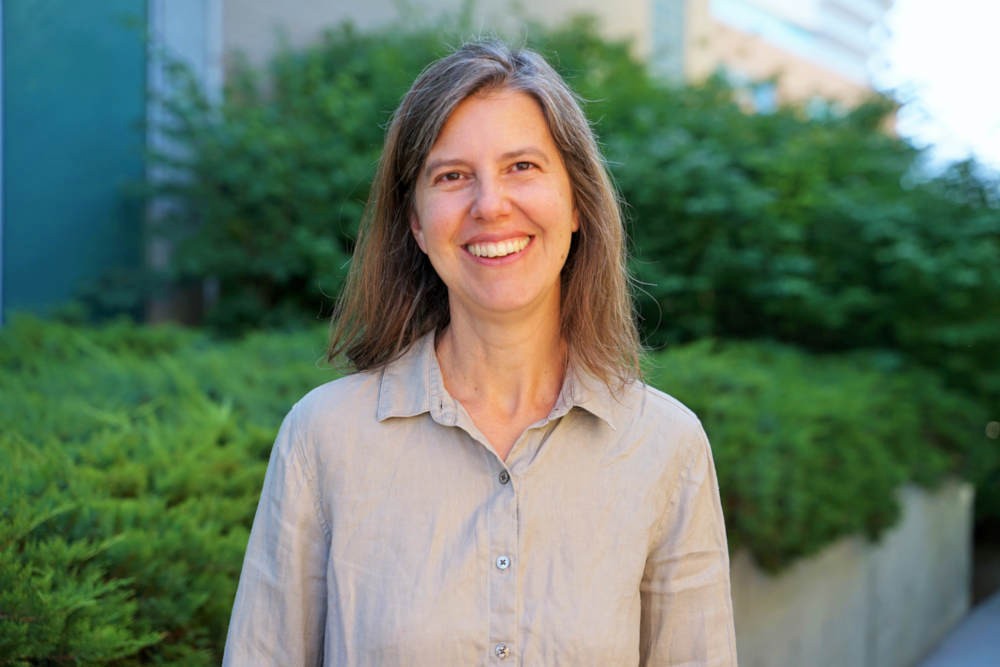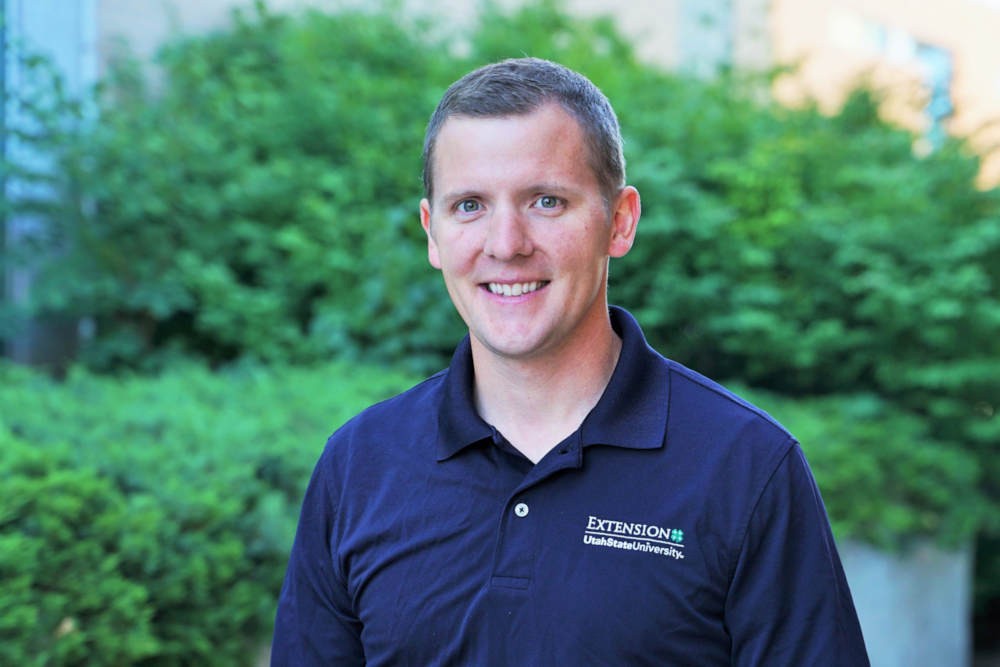USU Soil & Plant Scientists Part of $15M Project to Study Carbon Farming
By Ysabel Nehring |
With record high temperatures scorching Utah into September this year and crushing previous years’ records, the effect of excess carbon in Earth’s atmosphere is impossible to ignore. Carbon sequestration — or locking carbon into soils — is the main driver of a recently announced five-year, $15 million research project funded by the Foundation for Food & Agriculture Research (FFAR) and matching contributions from The Ohio State University, agricultural industry groups, and other donors.
Professor Jennifer Reeve and Associate Professor Matt Yost in Utah State University’s Department of Plants, Soils and Climate are among the collaborators on the project that brings together researchers from across North and South America. The project is led by Ohio State’s Rattan Lal, who is recognized internationally for his research on soil health’s influence on crop productivity. Lal runs OSU’s Rattan Lal Center for Carbon Management and Sequestration and is the principal investigator for the new study titled Enhanced Soil Carbon Farming as a Climate Solution.
According to the FFAR announcement, carbon farming optimizes carbon capture by implementing practices that are known to improve the rate at which carbon dioxide is removed from the atmosphere and stored in plant material or soil organic matter.
Current knowledge on carbon farming is primarily based either on simulation modeling or data from a limited number of field experiments, and knowledge gaps exist in understanding how projected climate extremes will impact carbon sequestration, crop productivity, agricultural greenhouse gas emissions, and soil health across diverse landscapes.
The new study is focused on field research in specific locations across the Americas. The researchers are collecting data from croplands, grasslands, rangelands and forests. On-farm research offers opportunities to study the impacts on soil organic carbon from fully implemented systems in terms of scale, management practices, and constraints faced by farm managers, growers and ranchers. The resulting data will be used to direct practices and calculate unique baselines for different geographies.
USU’s Reeve and Yost look forward to collaborating on the project and involving student researchers and Utah farmers and ranchers. The topic of the project closely aligns with Reeve’s long-term research focus on farm management, soil carbon stocks, and soil health, and Yost’s focus on sustainability as USU Extension’s agroclimate specialist.
“The new and exciting element here is that we are focusing on large-scale surveys of soils and management practices on working farms located in North and South America,” Reeve said. “Most of my work in the past focused on characterizing soil response to management in controlled experiments. While that work is crucial, better quantifying the interactions between management, soil type, climate, and soil carbon stocks on farms is critical in helping us mitigate and adapt to the effects of climate change.”
In this new project, Reeve and Yost will work with Utah farmers to better understand how their soils respond to management. This will include identifying fields with similar soil types that have contrasting management histories and collecting data from these fields on soil properties and carbon stocks. The project benefits from the collaborative efforts of a large number of faculty at other institutions who will be collecting data in their respective states and regions. Data from the project will be pooled and used in new modeling efforts to better understand the relationships between management and carbon stocks on working farms and rangeland.
Reeve noted that she and Yost, as well as student researchers working with them, will have opportunities to collaborate and network with scientists from across the Americas. She expects results from this massive research undertaking will be incorporated into classrooms and Extension programming and influence regional and global farming practices.
#####
Jennifer Reeve is a professor of USU's Department of Plants, Soils and Climate.
Matt Yost is a professor in USU's Department of Plants, Soils and Climate.
WRITER
Ysabel Nehring
Ysabel.Nehring@usu.edu
CONTACT
Jennifer Reeve
Associate Professor
Plant, Soils and Climate Department
435-797-3192
jennifer.reeve@usu.edu
TOPICS
Agriculture 225stories Plants 186stories Climate 151stories Soils 27storiesComments and questions regarding this article may be directed to the contact person listed on this page.











